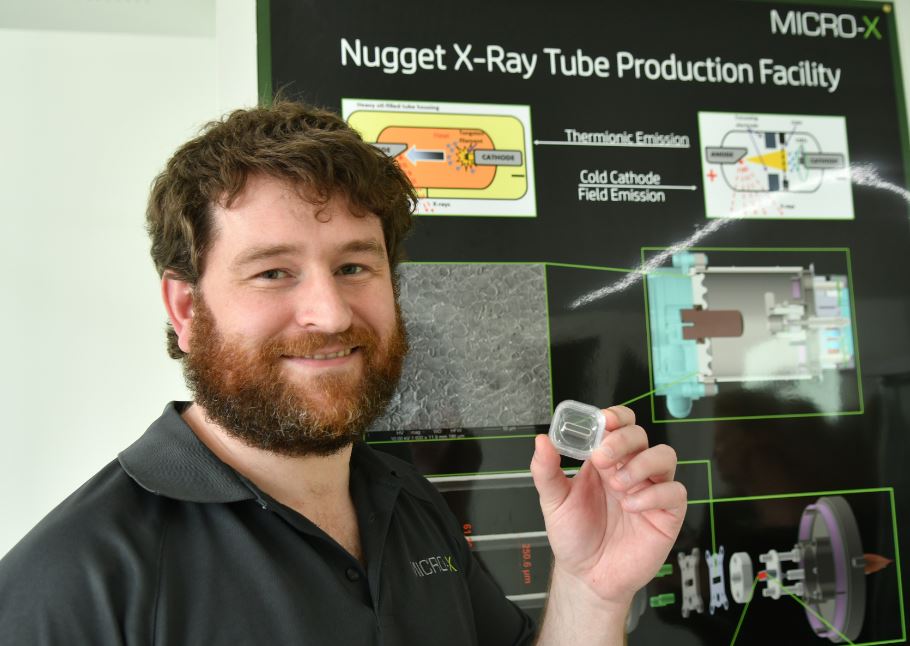
Flinders students, researchers and graduates are thriving at the booming Tonsley Innovation District.
The University has become an integral part of the precinct since Flinders University opened its $120 million high-tech learning and research facility in the Main Assembly Building (MAB) at Tonsley more than five years ago.
The 61 hectare former Mitsubishi manufacturing site has become a catalyst for startups and entrepreneurs, and a base for dozens of companies and highly skilled workers, giving Flinders University students real-world industry engagement on their doorstep.
Flinders at Tonsley is working on world-class R&D projects with global shipbuilding and defence companies, Naval Group Pacific and BAE Systems Australia, rising small-medium enterprises such as SAGE Automation, Micro-X and Innovyz, and international companies including Siemens, Tesla and Motherson.
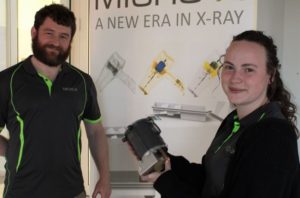
Micro-X R&D Project Manager Dr Steve Trewartha, a Flinders University graduate in science and nanotechnology, has helped design and develop a key component of the company’s successful X-ray export product.
“It’s been an amazing opportunity to be part of the rapid growth of Micro-X, and to see so many local university graduates now working here or coming through as interns for work integrated learning,” says Dr Trewartha, who works ‘next door’ to the Flinders University building at the Tonsley MAB.
Micro-X has grown to 55 employees, including 10 permanent and casual employees hired through Flinders University connections, since launching its first mobile X-ray product in 2018.
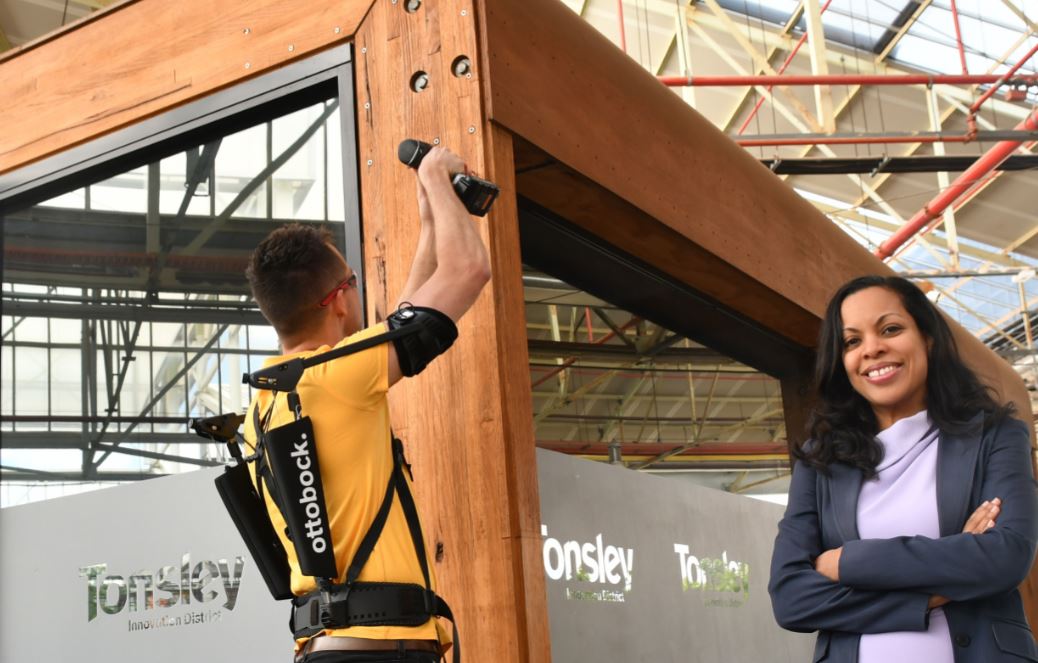
Flinders University also has forged one of the first Australian ‘Industry 4.0’ partnerships with Naval Group Pacific, leading to a series of exciting research trials, says Flinders Professor in Innovation Giselle Rampersad.
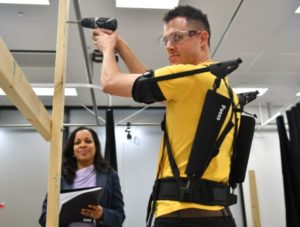
“The projects include applications of exoskeleton technologies and mobile machining robots that will help support Naval Group’s digital shipyard vision by providing assistive manufacturing capabilities to shipbuilders for improved quality, safety and productivity,” Professor Rampersad says.
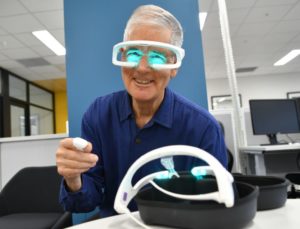
Global design engineering and manufacturing group Motherson, whose SMR Australia division manufactures automotive, medical and Internet of Things (IoT) products and devices at its Lonsdale facility in Adelaide’s southern suburbs, also has research collaborations with Flinders University and the Tonsley Innovation District.
“Motherson values the strong relationships we have with Australian universities, including Flinders,” says Sam Vial, Chief Commercial Officer for Motherson Medical.
“The Re-Time sleep health device that we commercialised on the back of Flinders research, and our advanced microfluidics-based sensor used to detect bladder cancer (with UniSA and Flinders), are just two examples of collaborations that we have with South Australian universities,” he says.
Motherson is also a major sponsor of the Medical Device Partnering Program (MDPP) which is run by Flinders University.
The Flinders at Tonsley building centrally locates the University’s College of Science and Engineering, with research groups including the Tonsley Manufacturing Innovation Hub, Institute for NanoScale Science and Technology, and Flinders Digital Health Research Centre in the same precinct as some of Adelaide’s biggest businesses and industries.
The six-storey 16,000sq m Flinders at Tonsley building expands the University’s reach beyond its Bedford Park campus, bringing together education, innovation, business and commercial start-up ventures in one precinct, to stimulate economic growth in industries of the future

“Since Flinders University opened its $120 million high-tech learning and research facility at Tonsley five year ago, our University has been part of an exciting new era in advanced manufacturing and future career pathways,” says Pro Vice-Chancellor (Research Impact) Professor John Spoehr, director of the Australian Industrial Transformation Institute (AITI) research group at Tonsley.
“We have not only built strong ties with local and global companies but also created a two-way avenue for our State’s agility in moving from traditional manufacturing to new fields of enterprise.”
Along with high-tech, new-economy companies based at the former Mitsubishi MAB, SA agricultural equipment company Seed Terminator have been able to grow from their base at Flinders at Tonsley.
Seed Terminator co-founder Mark Ashenden says operating from the Tonsley Innovation District and interacting with like-minded people has been very valuable.
“Agriculture and its emerging technologies is a major industry and Seed Terminator continues to innovate and adapt to grow with it,” Mr Ashenden says.
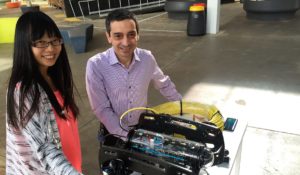
“From a small startup in 2016, science, engineering and research has seen us scale up to be deployed internationally from SA, benefiting from being a part of this nest of innovation at Tonsley, working closely with other companies in a vibrant community.
“This year’s good harvest has seen us sell our 200th machines made by several local manufacturers, creating jobs for dozens of people.”
Mr Ashenden says the local Tonsley network is enhancing South Australia reputation as an advanced manufacturing state.
A number of other new industries and products have been commercialised via the Flinders University-Tonsley network.
Along with 28 specialist laboratories, the College of Science and Engineering at Flinders covers biomedical, civil, electrical, electronic, mechanical, software, maritime and robotic engineering, IT, network systems and mathematics, and more recently cybersecurity and artificial intelligence (AI).
Meanwhile, the AITI, New Venture Institute, University’s Work Integrated Learning program and Medical Research Device Institute (and State Government funded MDPP) based at Flinders University have helped to open doors to hundreds of job opportunities in South Australia.








